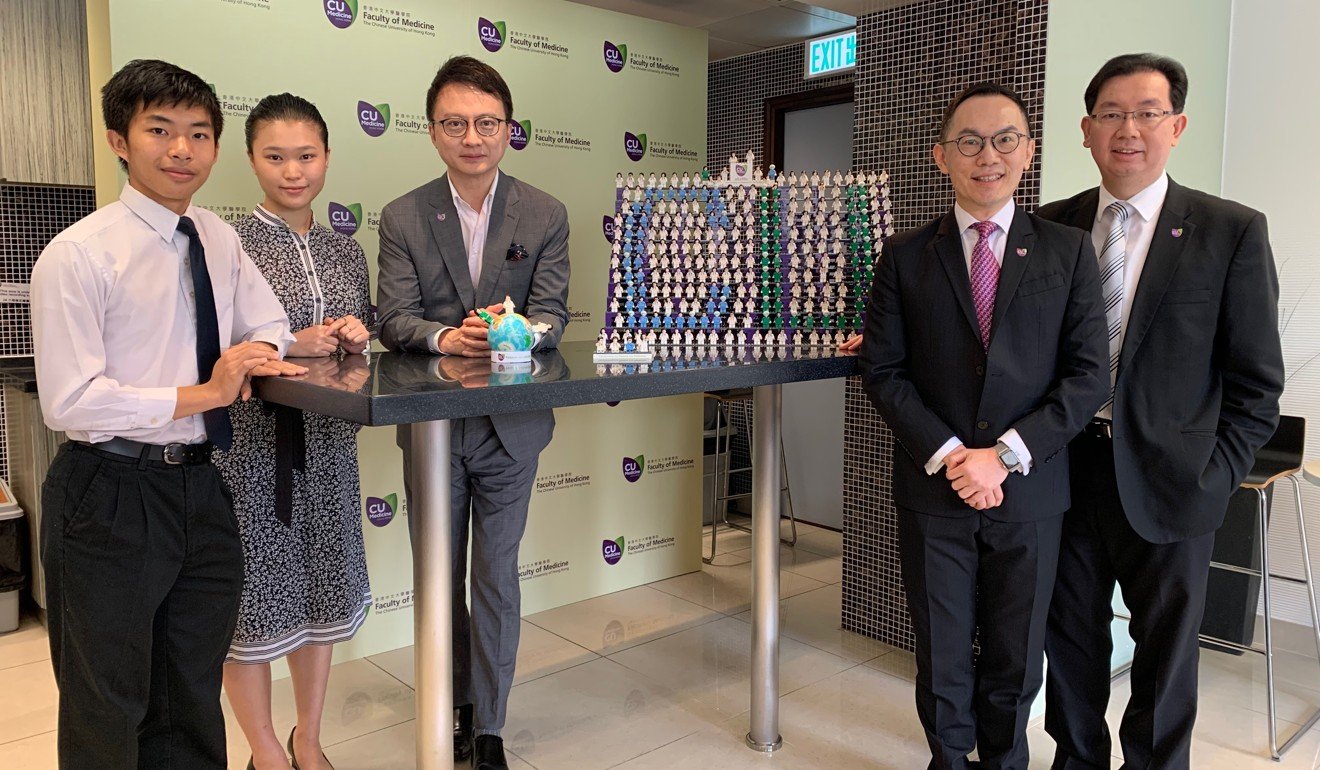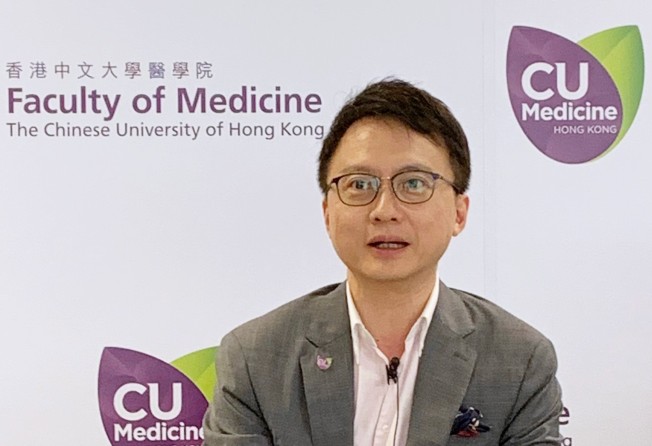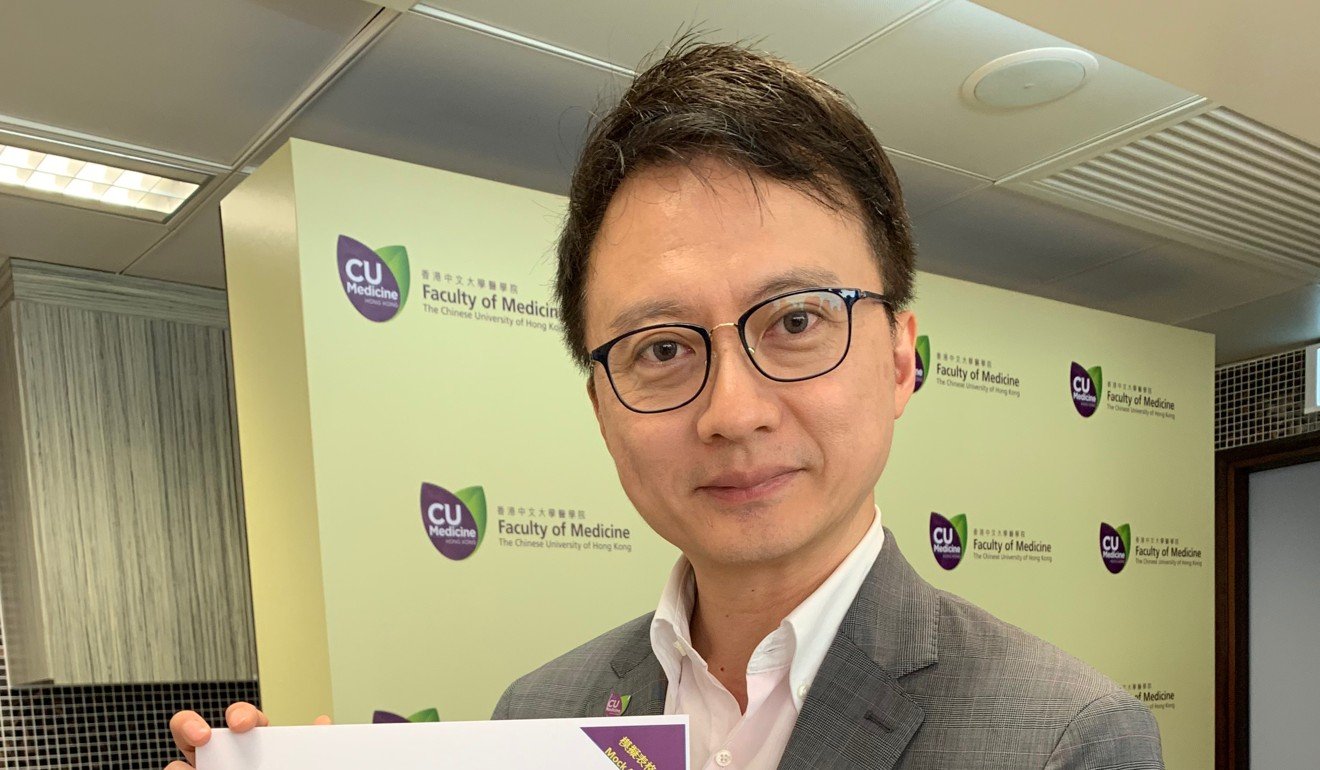
Chinese University of Hong Kong refuses to lower entry requirements for student doctors, despite recruitment shortages
- High standards of the medical profession must be maintained, says CUHK
- Rival HKU insists reducing minimum subject score does not affect quality of students

One of the major trainers of Hong Kong doctors has defended a decision not to lower the threshold for student admissions despite the city’s chronic shortage of physicians.
Chinese University announced on Thursday that only high school graduates who score 40 or above in seven subjects on their entrance exam, who list the course as their first choice, and who perform satisfactorily in the admission interview will be guaranteed a place on its Bachelor of Medicine and Bachelor of Surgery programmes.
It comes as its rival, the University of Hong Kong, unveiled a plan to admit students who obtained a minimum score of 36 for six subjects, which is four points and one subject below CUHK’s requirement.
Previously, people applying to HKU’s medical faculty needed a minimum score of 37 for six Diploma of Secondary Education examination (HKDSE) subjects.

While most candidates take four core subjects and two elective subjects, CUHK has encouraged youngsters aiming to do a medical degree there to sit through another elective subject.
The university, which was founded in 1963, said its entrance requirements would help maintain high standards in the medical profession.
Under the seven-tier grading system of the HKDSE, students can achieve levels from 1 to 5 for each subject, including 5* and 5** for the very top performers.
While declining to comment on HKU’s admission threshold, the dean of CUHK’s faculty of medicine told reporters during a media gathering that the school believed students’ HKDSE scores reflect their comprehensive abilities.
The reason we stress on seven subjects is because we want to enrol those who have an overall balanced academic performance, rather than just excelling in one or two specific subjects
“The reason we stress on seven subjects is because we want to enrol those who have an overall balanced academic performance, rather than just excelling in one or two specific subjects,” Francis Chan Ka-leung said.
“Students who have obtained at least 40 in seven subjects, meaning those who are able to demonstrate overall good performance in various subjects, will have a higher level of learning ability and adaptability. While those who have got a score of 36 in six subjects sometimes show a lack of skills in one of the subjects.”

The University of Hong Kong, the only other institution in the city that offers medical degrees, insisted setting the minimum HKDSE score at 36 did not mean it had lowered its standards.
“It would be unfair to make such a comparison because this year we are also asking candidates to list our programme as their first choice and make the cut for both grades and interview,” the school’s spokesman said.
Meanwhile, CUHK is also allowing newcomers in 2019 to enjoy greater flexibility and diversity in their studies by introducing a personalised curriculum.
Students are encouraged to study abroad, attend overseas conferences and undertake minor subjects during their six-year university life.
“We want our students to be able to shape their study programme according to their interests and pace. Who said medical students cannot also have a campus life?” said Vincent Mok Chung-tong, the assistant dean of admissions at CUHK.
“We do not want them to burn out. That is why we’ve designed the programme so our first- and second-year students can enjoy a more relaxed class schedule, which in turn can allow them to register for elective courses or even take on other minor subjects,” he said.
Mok also revealed that, as of last week, at least 500 candidates had been interviewed.
The school conceded that prospective students would find out the outcome of their interviews in July, before the release of their HKDSE exam results.
Both CUHK and HKU will offer 265 places in the 2019/20 school year, 30 more than the year before, as part of a government push to boost publicly funded training places for doctors, dentists, nurses and allied professionals for the coming three years.
At present, there are more than 14,000 doctors in Hong Kong, or about 1.9 doctors per 1,000 people, according to a study by the Our Hong Kong Foundation.
To reach Singapore’s ratio of 2.4 per 1,000, Hong Kong would need to hire 3,000 more doctors, the study found.
The Hospital Authority said the city was short of about 350 doctors at public hospitals at all times, even outside the winter flu season.